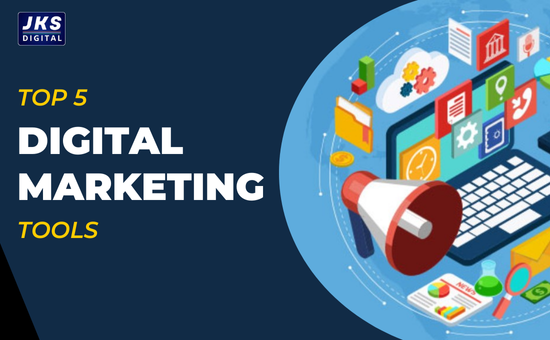Local SEO vs. Global SEO: In today’s digital age, a strong online presence is critical for any organization. But to achieve this, you need the right Search Engine Optimization (SEO) strategy tailored to your goals. One of the most common dilemmas businesses face is choosing between Local SEO and Global SEO. While both approaches aim to improve search engine rankings, they cater to vastly different audiences and objectives.

Let’s dive deep into what Local SEO and Global SEO entail, their benefits, and how to decide which one suits your business.
What is Local SEO?
Local SEO focuses on optimizing your online presence to attract more business from local customers. It’s ideal for businesses targeting a specific geographic area, such as cities, towns, or neighborhoods.
Key Features of Local SEO
- Geographic Targeting
Local SEO emphasizes location-specific keywords like “best bakery in New York” or “plumber near me.” - Google My Business Optimization
Creating and optimizing a Google My Business (GMB) profile is essential for local SEO. This allows your business to appear in local searches and on Google Maps. - Customer Reviews and Ratings
Reviews play a significant role in local SEO. A positive online reputation can boost your visibility in local search results. - NAP Consistency
Keeping your Name, Address, and Phone Number (NAP) consistent across all platforms fosters confidence and authority.
Read Also – Content Marketing vs: Paid Ads: Choosing the Best Approach
When to Choose Local SEO?
- You run a brick-and-mortar business like a restaurant, salon, or retail store.
- You’re a service provider operating in a specific area (e.g., electricians, doctors).
- You want to attract customers physically near your location.
- You participate in community events or serve regional customers.
Benefits of Local SEO
- Increases foot traffic to your physical location.
- Builds trust through customer reviews.
- Improves visibility on Google Maps.
- Provides a high ROI for location-specific marketing.
What is Global SEO?
Global SEO aims to attract a worldwide audience, making it ideal for businesses with no geographical restrictions. It focuses on optimizing your website for broader, global search terms and audiences.
Key Features of Global SEO
- Broad Keyword Targeting
Unlike Local SEO, Global SEO uses keywords without geographic limitations, such as “buy running shoes online” or “best project management software.” - Multilingual and Multiregional Targeting
If your audience spans different countries, Global SEO often involves creating multilingual websites and using hreflang tags to serve the right content to the right audience. - Focus on Competitive Niches
Global SEO requires competing with large-scale businesses and ranking for highly competitive keywords. - Comprehensive Link-Building
Building backlinks from authoritative global sites strengthens your domain authority and visibility worldwide.
Read Also – How to Grow Your Facebook Fast: Top 10 Tips and Strategies for 2025
When to Choose Global SEO?
- You run an e-commerce business that ships internationally.
- You provide digital services that cater to a global audience (e.g., SaaS platforms).
- You aim to establish your brand as a global authority in your industry.
- Your revenue model doesn’t depend on physical locations.
Benefits of Global SEO
- Expands your reach to international audiences.
- Helps you compete in global markets.
- Boosts brand awareness and authority.
- Diversifies revenue by targeting different markets.
Key Differences Between Local SEO and Global SEO
| Feature | Local SEO | Global SEO |
|---|---|---|
| Audience | Local customers near your area | International or global audience |
| Keyword Focus | Location-specific keywords | Generic or global keywords |
| Tools | Google My Business, Yelp | Multilingual SEO tools, analytics |
| Competition | Local competitors | Global competitors |
| Cost | Lower, specific to the local area | Higher, due to broader targeting |
Which SEO Strategy Does Your Business Need?
Ask Yourself These Questions
- Who is my target audience?
If your customers are primarily local, Local SEO is your go-to strategy. But if your audience is spread across regions or countries, Global SEO is the way to go. - What are my business goals?
Are you focused on increasing walk-in traffic or gaining international recognition? - What is my budget?
Local SEO is more cost-effective for small businesses, whereas Global SEO requires a significant investment for global outreach. - What is the nature of my product or service?
If your offerings require in-person interaction, like a dental clinic, Local SEO is best. However, for digital products, like software or online courses, Global SEO works better.
Read Also – Grow Instagram 2025: Top 10 Tips and Strategies for Fast Growth
Can You Combine Local and Global SEO?
Yes! Many businesses benefit from a hybrid approach. For instance:
- A local bakery that also ships nationwide can use Local SEO to attract nearby customers and Global SEO to promote its online store.
- A software company with physical offices in select cities can use Local SEO for office locations and Global SEO for online sales.
Conclusion
The choice between Local SEO and Global SEO ultimately depends on your business model, audience, and goals. If you’re looking to dominate the local market and bring more customers to your physical location, Local SEO is the right choice. On the other hand, if you’re aiming for global recognition and want to tap into international markets, Global SEO is the better fit.
By aligning your SEO strategy with your business objectives, you can maximize your visibility and achieve sustainable growth. Still unsure about which approach is best for your business? Reach out to an SEO expert for tailored advice!
Let your business thrive—locally or globally!
Stay tuned to JKS Digital to read such latest, engaging and informative posts.






